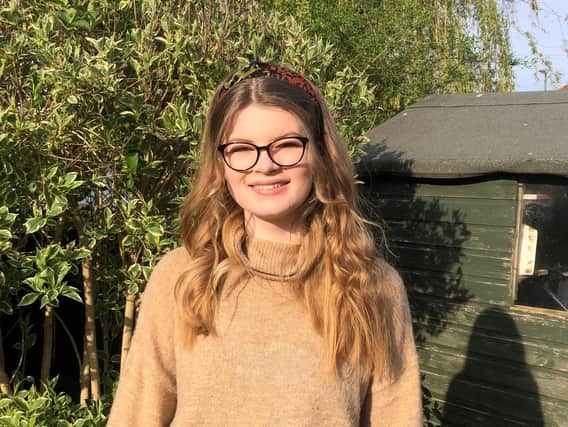Just how far can we go with our "toxic positivity"?


The pandemic robbed her of the chance to sit A levels. But she ended up with three As and is now studying journalism at the University of Brighton (Eastbourne campus).
Here is her latest contribution.
"As I write this, the rain is pouring from what I can see from my window, and there isn’t a patch of blue in the sky. I am wearing an outfit suspiciously resembling pyjamas and can see in my mirror a mess of hair and a face that hasn’t seen makeup for what appears to be several weeks. Although this is a scene perhaps typical of my life on the South coast minus the pandemic, I believe I speak for many when I say that lockdown 3.0 (or 4.0? I don’t know, I’ve lost track) has a very different personality to that of the first.
Advertisement
Hide AdAdvertisement
Hide Ad"Lockdown number one, despite the anxiety that came with the virus, felt almost like a slightly rubbish but still enjoyable holiday. With A-Levels out the window, I spent the vast majority of my time lounging in the sun with a book, running and watching movies, in the knowledge that not only was I getting a needed break but also joining the fight to keep the strain off the NHS. The assumption that lockdown would be a period of three weeks at most led me to appreciate that time of rest all the more, believing that in a month’s time my social calendar would have grown tenfold.
"And now, mid-January, here we are again. Runs that had once been in distances of up to fifteen kilometres are now at a steady six, novels in the garden have been replaced by academic journals at my desk, and it is now almost impossible to come back from a walk without either a) mud splattered up my jeans or b) a coat that is completely drenched. Yes, I may have sold this period pretty poorly, and as I sit on my floor next to a portable heater in my joggers and hoodie, things aren’t looking the most exciting. However, where do we draw the line between remaining optimistic for the sake of mental health, and toxic positivity?
"For those who may not have encountered the phenomenon of toxic positivity before, it can be defined as the mindset that even if a situation is extremely tough, a constant mentality of positivity and gratitude should be maintained. For some it may be challenging to understand why this would be labelled ‘toxic’ when the goal is to preserve an ever hopeful and therefore ‘happy’ attitude, but when looking into the reality of this mindset it is not necessarily the healthiest way to think. In the middle of a pandemic especially, we have the right to feel things.
"We have the right to feel lonely even if we may have more people around us than others, and the right to feel completely fed up with the situation even if we have not experienced the illness ourselves. This week especially as the rain has fallen and I have been essay writing for hours on end, I have felt, if I am honest, angry that instead of being together at university, the friends I have made are scattered all over the world. I think it is okay to feel grateful for our health and wellbeing whilst also experiencing pangs of sadness about what is going on around us. Lockdown or not, our brains are not wired to be in a constant state of enthusiasm, and we owe it to ourselves now more than ever to acknowledge that however we are feeling, there is nothing ‘wrong’ about it."